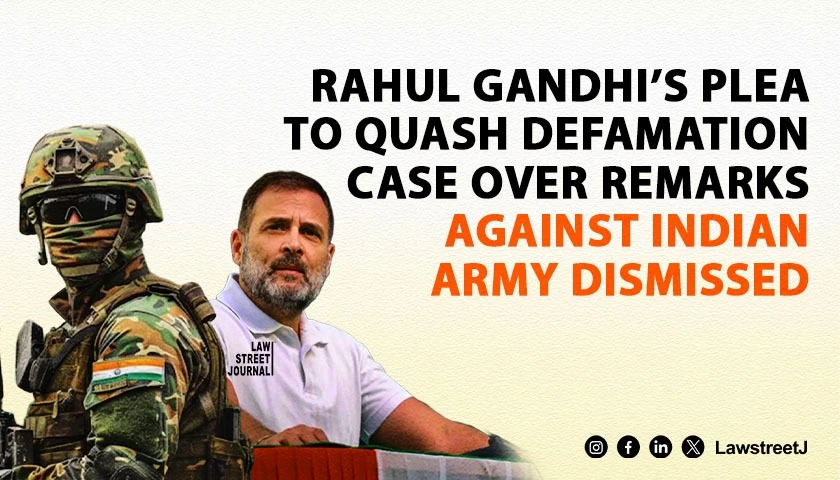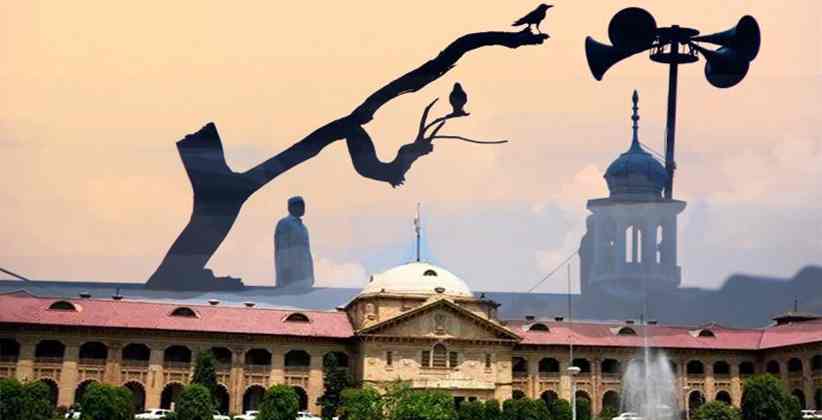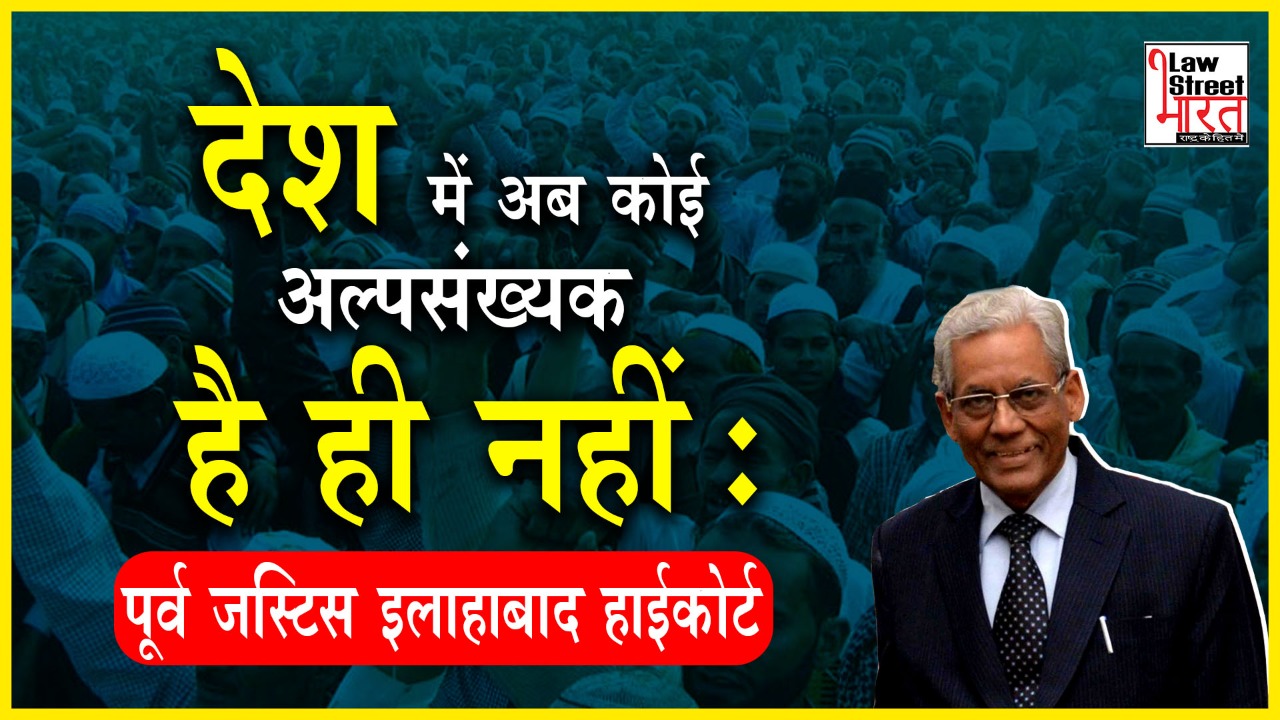Prayagraj: The Allahabad High Court has dismissed a petition filed by Congress leader Rahul Gandhi seeking to quash defamation proceedings initiated against him over alleged derogatory remarks about the Indian Army, emphasizing that the right to freedom of speech does not extend to defamatory statements against the armed forces.
Justice Subhash Vidyarthi delivered the judgment, rejecting Gandhi’s application under Section 482 of the Criminal Procedure Code challenging the validity of a summoning order dated February 11, 2025.
The court addressed Gandhi’s challenge to the summoning order passed by the Additional Chief Judicial Magistrate, Court No. 27, Lucknow, which directed him to face trial for offences under Section 500 of the Indian Penal Code (defamation).
The complaint was filed by Udai Shankar Srivastava, a retired Director of the Border Roads Organization (equivalent to the rank of Colonel in the Indian Army), who alleged that Gandhi made false and baseless statements intended to demoralize the Indian Army.
The controversy stems from remarks allegedly made by Gandhi on December 16, 2022, during his ‘Bharat Jodo Yatra’ in the presence of media persons. According to the complaint, Gandhi stated:
“People will ask about Bharat Jodo Yatra, here and there, Ashok Gahlot and Sachin Pilot and whatnot. But they will not ask a single question about China capturing 2,000 square kilometers of Indian territory, killing 20 Indian soldiers, and thrashing our soldiers in Arunachal Pradesh.”
The complainant argued that these statements were in reference to a face-off between Indian and Chinese troops at the Arunachal Pradesh border on December 9, 2022, and that Gandhi’s characterization of the incident as Chinese troops “thrashing” Indian soldiers was false and demoralizing.
Responding to Gandhi’s contention that the complainant lacked locus standi under Section 199 CrPC—as the statements were against the Indian Army and not personally defamatory—the court held otherwise. It observed:
“The complainant has stated that he is a senior citizen who retired as Director from the Border Roads Organization, a position equivalent to Colonel in the Indian Army. The disrespectful comment made against the Indian Army, intended to demoralize its personnel and portray its achievements in a demeaning manner, amounts to an insult not just to the Army but to the entire nation, which has hurt the complainant.”
The court emphasized that the phrase “some person aggrieved by the offence” in Section 199(1) CrPC allows for complaints by individuals even if the offence was not directly committed against them.
In a significant remark on free speech, the court stated:
“No doubt, Article 19(1)(a) of the Constitution guarantees freedom of speech and expression; however, this freedom is subject to reasonable restrictions and does not include the right to make defamatory statements—whether against individuals or the Indian Army.”
Rejecting arguments that the summoning order was issued mechanically, the court found that the magistrate had applied judicial mind after considering the complaint, the complainant’s statement under Section 200 CrPC, and witness depositions under Section 202 CrPC.
The court noted:
“In my considered opinion, the trial court has rightly arrived at the decision to summon the applicant to face trial for the offence under Section 500 IPC, after taking into account all relevant facts and circumstances and satisfying itself that a prima facie case exists.”
It also referred to Gandhi’s criminal history, as disclosed in his supplementary affidavit, which included 24 criminal cases, including a previous defamation conviction under Sections 499 and 500 IPC.
Significantly, the court cited observations from the Supreme Court in another case involving Gandhi, where the apex court had noted that his “alleged utterances are not in good taste” and that “a person in public life is expected to exercise a degree of restraint while making public speeches.”
Accordingly, the High Court dismissed Gandhi’s application under Section 482 CrPC, concluding that the summoning order did not suffer from any illegality that would warrant interference under its inherent jurisdiction.
Case Title: Rahul Gandhi vs. State of U.P. Through Additional Chief Secretary (Home), District Lucknow & Another




!["No Loudspeakers For Azan, No Fundamental Right To Create Noise," Says Allahabad HC To Two Mosques [Read Judgment]](/secure/uploads/2020/01/lj_4995_Allahabad_HC_AZAN.jpg)








